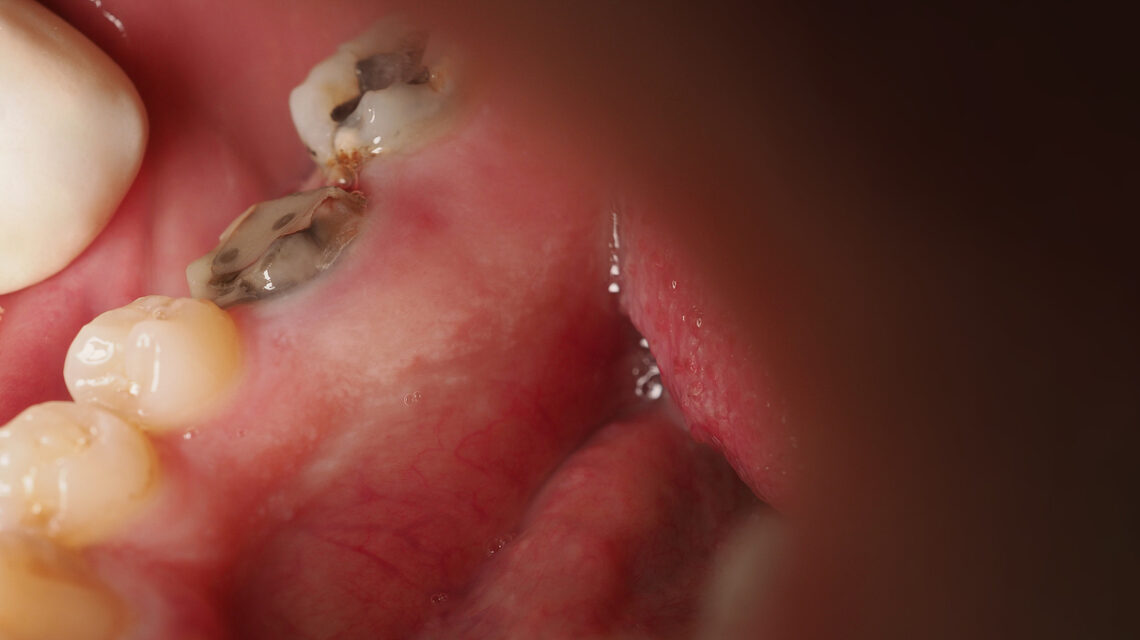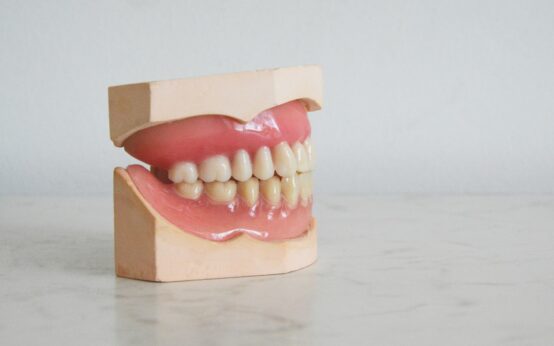If left untreated, tooth decay can cause a hole in a tooth. To repair this tooth, a dentist will remove the decayed part and fill it with filling material. Tooth decay spreads quickly if left untreated. It is important to visit the dentist as early as possible because early detection prevents bacteria from damaging the center of the tooth. Left untreated, decay can cause sensitive teeth to hot and cold. Even a small cavity can cause pain and sensitivity to hot and cold.
Table of Contents
Dental plaque
Tooth decay is a common condition that is caused by plaque, a sticky film on the teeth that contains millions of bacteria. Plaque is made when sugars and starches in our diets are not cleaned off properly. These sugars and starches feed the bacteria in plaque and can damage tooth enamel, which will eventually lead to gum disease or cavities. The best way to prevent plaque is to brush your teeth and floss regularly. But regular cleaning is not enough. You also need to see a dentist regularly to have your teeth cleaned.
Plaque forms on our teeth every day. Scientists call this film “biofilm,” a collection of living microbes in an environment surrounded by a polymer layer. The sticky coating helps these microbes attach to the surfaces of our teeth and grow. When plaque is left untreated, it can build up over time and turn into hard tartar. This is the main cause of tooth decay. So, how can we prevent plaque? By brushing regularly and using toothpaste and gum treatments, we can prevent dental plaque.
Brushing your teeth will remove the majority of dental plaque. But once this is left on your teeth for more than a few hours, it will harden into tartar, a sticky substance that cannot be removed with brushing alone. It may also be a sign of gum disease or infection. If you are concerned about tartar, schedule regular checkups with a dentist to have it checked out and treated. The dentist will tell you what steps you should take to avoid tartar.
Acidic foods
You may have heard that acidic foods cause tooth decay. Acid from the stomach enters the mouth, and this acid can damage the tooth enamel if not treated immediately. In fact, food acids are often added to processed foods, and the more acid-rich the food, the higher its acidity.
Most processed foods contain a lot of sugar, and some juices, even those labeled “no added sugar” have natural sugar. While you shouldn't consume too much sugar at once, eating a small amount of sweets before eating will help neutralize the acid in your mouth. Also, wait about 20 minutes before brushing your teeth after eating to allow the saliva to remineralize the enamel. The acid from the food can cause a build-up of plaque on the teeth, which results in tooth decay.
Drinking plenty of water is essential for preventing and reducing the chances of tooth decay. Drink plenty of water throughout the day, and if you're consuming acidic drinks, use a straw to minimize contact with your teeth. Join our newsletter for more tips and exclusive promotions. You'll also be able to access a variety of valuable discounts and exclusive giveaways. Once you've mastered the basics of oral hygiene, you can move on to avoiding acidic foods and drinking more water.
Dry mouth
Aside from brushing twice a day and flossing every day, you can combat dry mouth by drinking plenty of water. Water is an important component of oral hygiene because it helps to rinse away bacteria and acidic food particles that can cause cavities. Water can also increase saliva production, so it's important to drink plenty of water while exercising or sweating. Chewing sugarless gum, using an interdental cleaner, and limiting acidic food intake are all great ways to prevent tooth decay.
Saliva contains important protective and remineralizing compounds that protect tooth enamel and prevent decay. Saliva also contains enzymes that inhibit the growth of bacteria. A dry mouth causes new cavities to form faster than normal and leads to different types of decay. To avoid cavities, you should practice good oral hygiene and use fluoride toothpaste. Those with chronic pain should avoid using narcotic medications and opt for water-based mouthwashes and sugarless gum.
People with chronic dry mouth are also more prone to gum disease, which is a common complication of tooth decay. Dry mouth allows bacteria to reach the roots of the teeth and results in tooth decay. Without regular visits to the dentist, the decay may even spread to structures supporting the teeth. Dry mouth also exposes the dentin layer of the tooth, which increases the risk of fractures and tooth decay. Further, dry mouth contributes to tooth discoloration, which can lead to the loss of a tooth.
Worn fillings
Cavities are one of the most common forms of dental damage, especially among children and the elderly. Fillings can help prevent cavities, repair damage caused by decay, and protect your teeth. Unfortunately, fillings cannot last forever and will need to be replaced at some point. Dr. Everett E. Heringer discusses how to recognize damaged fillings, how to care for them, and how to replace them at the appropriate time. In addition to preventing unnecessary dental problems, replacing fillings on time can prevent future cavities.
As fillings wear out, the surface of your teeth changes, causing discomfort when chewing. You can easily spot worn fillings by noticing dark rings around the edges of your teeth. This indicates that your tooth enamel has begun to wear away around the filling, exposing it to the elements. Also, silver fillings will change the color of your teeth as they wear down. These factors will indicate if your filling is damaged and needs replacement.
Worn fillings may also cause tooth sensitivity. Pain from hot or cold may come and go after you remove the filling. If the pain persists, a problem may have reached the tooth pulp and necessitating root canal treatment. To prevent any further decay, you should visit your dentist regularly to make sure your fillings are in good condition. Your dentist can examine your teeth with x-rays to find out if they are healthy or not.
Prescription fluoride treatments
While you can find fluoride in many products, prescription fluoride treatments for tooth decay are stronger. Fluoride strengthens tooth enamel, which means fewer cavities. Fluoride helps prevent tooth decay by inhibiting the acid production of plaque, the main cause of tooth decay. Unlike your bones, teeth have a higher mineral content than their counterparts. Fluoride treatment boosts the remineralization process and strengthens tooth enamel. A dentist applies a fluoride varnish to the teeth, which quickly sets by the interaction of saliva and sets on the teeth. Afterward, the patient should choose soft, non-abrasive foods for the rest of the day.
Fluoride treatment for tooth decay may be a systemic or topical solution. A dentist may prescribe prescription fluoride treatment for a child. These treatments are more effective because they strengthen teeth from within the body. Fluoride is commonly added to public drinking water to help prevent tooth decay. But not all fluoride treatment is as effective as a prescription fluoride treatment. In addition to fluoride toothpaste, your dentist may also prescribe fluoride mouth rinses or dentifrices.
Another form of prescription fluoride treatment is fluoride varnish. This is a thin layer of gel that is painted onto the teeth and hardens into a sticky layer, allowing the fluoride to penetrate the enamel. It is fast and easy to apply, but does make your teeth look yellow. Although it provides protection for several months, it must be reapplied every three to six months.
Prevention
Practicing proper oral hygiene is essential for the prevention of tooth decay. A diet low in added sugars and sugary drinks is a must for the prevention of tooth decay. A diet high in carbohydrates can contribute to tooth decay, especially if they are consumed frequently. Regular visits to the dentist can help you avoid the risk of developing decay. The dentist can also prescribe a mouth rinse to help reduce acid-producing bacteria. However, infants are not born with specific bacteria that cause tooth decay. Infants can acquire acid-producing bacteria from their caregivers' saliva.
Tooth decay is a natural process caused by bacteria in the mouth. These bacteria feed off the sugars in foods and produce acid that eats away at the outer layer of the tooth. When this acid attacks the tooth surface, it turns into a cavity. The process of tooth decay is most easily prevented by maintaining a healthy diet and drinking plenty of water. Using fluoride toothpaste should also be a part of your routine.
It is important to understand the role of bacteria in the prevention of tooth decay. Bacteria in the mouth are both helpful and harmful. These bacteria feed on sugar and produce acids that attack the minerals in the tooth enamel. The acids eat away at the enamel and cause cavities. Fortunately, this process is reversed once teeth become healthy. The best way to prevent tooth decay is to avoid sugary foods and beverages. Avoid sticky foods, and drink plenty of water.
Sources:



 Tooth Decay – Symptoms and Treatment For Tooth Decay
Tooth Decay – Symptoms and Treatment For Tooth Decay